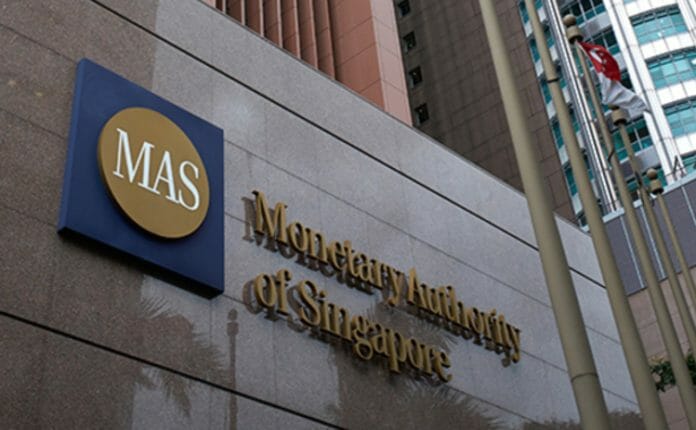Singapore’s central bank is set to tighten monetary policy for a sixth time since October 2021, as it looks to stamp out a 14-year-high inflation rate even as the global economic growth outlook darkens.
The Monetary Authority of Singapore (MAS), which uses the exchange rate rather than interest rates to stabilise prices, probably will signal on Friday (April 14) that it’s seeking a stronger local dollar to curb imported inflation pressures, according to 12 of 22 analysts surveyed by Bloomberg. The other 10 see the MAS leaving its three policy settings unchanged.
While projections for the first of the MAS’ twice-a-year decisions — in April and October — were divided, Tharman Shanmugaratnam, the chairman of the central bank, provided an early signal of what’s to come.
The monetary authority will continue to focus on ensuring medium-term price stability as the basis for sustained economic growth, he said in a statement late on Wednesday.
The majority of analysts surveyed also see the MAS tightening on Friday, but they were split on how that would be achieved:
Eight analysts saw a steepening of the slope;
Five predicted a recentring upwards;
None of the survey respondents saw a change to the width of the band.
At the core of the debate is whether inflation or growth will weigh more on the MAS officials’ thinking right now, given core prices are still accelerating at the fastest pace since 2009. MAS managing director Ravi Menon said just last month that market expectations of an end to global tightening and the potential of a pivot to cuts anytime soon were “excessively optimistic”.
At the same time, the trade-reliant city state is beholden to global growth risks, which have bubbled up in recent weeks with the US- and European-led banking turmoil. The International Monetary Fund on Tuesday downgraded its outlook for global growth for the year to 2.8% from 2.9% in January, warning that even as the financial sector has settled from the bank failures in March, the impact might still be felt through tightened credit and a deeper downturn, if it materialises.
MAS added any further analysis of the state of the global banking system, where previously the MAS has said the city state’s banking remained sound and resilient.
Any changes to inflation and gross domestic product (GDP) forecasts, with an early read of first-quarter GDP also released on Friday morning. Officials have said inflation should moderate this year, while remaining elevated, and have estimated full-year economic expansion at 0.5%-2.5%.
How the MAS sees the policy outlook this year, and whether there are hints of further tightening that might be needed. Eight of 15 respondents to a Bloomberg survey question about forward guidance said the MAS will sound hawkish, with four predicting a balanced tone and three guessing it will be dovish.
Any hints that MAS officials are expecting they might have to hold another unscheduled decision. Survey respondents were nearly unanimous in thinking there won’t be more action before October’s scheduled meeting, when the MAS likely will maintain its policy.









